Yesterday, the UK’s Food Standards Agency (FSA) published new guidance on the safe limit of CBD which can be ingested daily, significantly reducing the figure from 70mg to 10mg.
Business of Cannabis reached out to a number of the key CBD businesses, high street retailers and industry associations to gauge the reaction and potential impact of this new guidance.
Goodrays
Goodrays CBD drinks, which are sold in a number of the UK’s largest retailers including Tesco, Waitrose and WHSmith, contain 30mg of CBD per can.
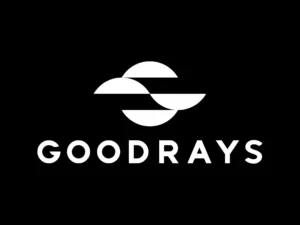
“The FSA has changed the daily intake guidance based on tests from three early market brands that have shown that repeated daily usage of those specific products over a lifetime period carries some risk of adverse impacts. However, it’s imperative to recognise that not all CBD is created in the same way and the guidance is not based on our products or those of many other market leaders.
“We work with the market-leading CBD supplier who has a recommended daily intake of 70mg per day, which is over 2 cans per day, and we’re sure that the guidance will soon take this research into account. As an industry, we need to get to a place where that quality and safety is recognised and we’re not being led by the worst-quality applications.
“There’s no change to the legality of our products and there’s loads of other categories that sell products which have a higher recommended daily intake, such as alcohol, soft drinks, vitamins and supplements. It’s in no way unusual. We’ve got incredible relationships with all our retailers who have been really positive and supportive during this update as they understand the difference between our products and the rest of the market.
“We know that consumers want high quality products and safe products so we welcome any further guidance from the FSA, which ultimately protects the consumer and advances the market forward. The next step is to work alongside the regulators to recognise the safety levels of our products versus the worst-case actors which are forcing them to set a lower guidance across all products. CBD quality varies massively across the industry and that’s what we need to standardise.”
The British Retail Consortium
With the FSA stating that ‘no products need to be removed at this stage’, the onus has now largely fallen on individual retailers to determine whether they will stock products with single doses over the new daily limit. Business of Cannabis reached out to a host of the UK’s largest high-street retailers, a number of which informed us they were ‘deferring to the BRC’.
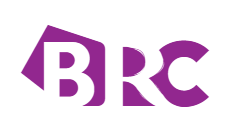
Andrea Martinez-Inchausti, Assistant Director of Food said: “Retailers will follow any and all FSA advice on the sale of products containing CBD oil, and take their obligations around these products very seriously.”
Pureis CBD
One brand that welcomed the new recommendations was Pureis, which sells a number of products, including capsules containing 20mg of CBD, in some of the UK’s most recognised retailers.
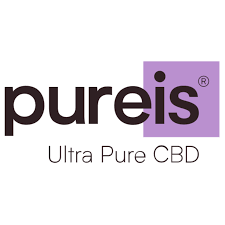
Pureis founder, Caroline Coen comments: “At Pureis, we welcome this recommendation from the UK Food Standards Agency. Pureis’ optimum and established dose of CBD has been 10mg daily for many years. This announcement represents a crucial step toward ensuring that consumers have access to safe CBD products in the market.
“We sincerely appreciate and welcome the valuable advice provided by the UK Food Standards Agency, and we will work collaboratively with them to ensure that our product continues to align with the highest standards of safety.”
Professor Mike Barnes
From a scientific and medical perspective, the decision has been widely criticised. As Consultant Neurologist and medical cannabis expert Professor Mike Barnes points out, CBD has widely been considered safe at much higher doses as a medicine and in other countries.

“The latest announcement by the FSA is, to say the least, disappointing. The recommendation of a maximum dose of CBD daily of 10mgs is unsupported by any solid evidence base.
“As the average dose needed to have a well being or medical effect is between 60 and 120mgs daily then effectively this recommendation will shut down the industry. One has to wonder if that is what the FSA wants?
“Given that CBD has along history of use in man and world wide is generally considered safe (Australia, for example, recommends 150mgs daily as maximum dose) then why is the FSA adopting this aggressive posture.
“I should point that children with epilepsy need about 10mgs/kg (or more with an isolate CBD) and that dose is considered safe given that Epidyolex (a nearly pure CBD) has a medical license. So why is 10mgs considered a top limit when children take 50 times that amount, or more? We await the evidence base for this recommendation with interest”
Cannabis Industry Council
This sentiment has been reflected in a number of industry associations, with many including the Cannabis Industry Council, which counts a number of CBD manufacturers and distributors as members, stating the guidance seems ‘heavy handed’.
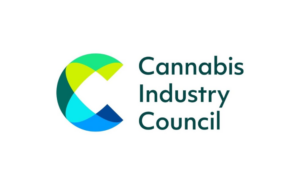
Cannabis Industry Council CBD Working Group Chair Damien Bove commented: “The Cannabis Industry Council will review the FSA announcement carefully and will respond in full in due course. At first glance the new guidance looks to be very heavy handed. We know many people find CBD very beneficial for their wellbeing and the livelihoods of many people in the CBD industry depend on this widely available product.”
European Industrial Hemp Association (EIHA)
EIHA’s Novel Foods Consortium represents a swathe of European CBD businesses and has been responsible for conducting toxicological studies, as per the request of the FSA, on behalf of its members.
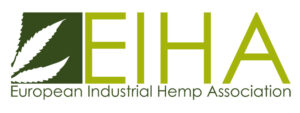
EIHA Board Member and UK representative Tony Reeves said: “The FSA’s revised consumption guidance from 70mg to 10mg/day for isolate-based products is extremely low even in the context of our own derived ADI, which is already very conservative in relation to the ‘exposure scenario’ and associated assumptions.
“I would also stress that the FSA have stated that there is no requirement to make any changes to packaging and other consumer communications with respect to this revised opinion; this is for guidance only and is not enforceable.”
EIHA’s Managing Director Lorenza Romanese said: “We value the FSA’s proactive vision for the CBD sector, evident in their emphasis on long-term consumption specific to CBD isolate. It’s unfortunate that the foundational studies guiding the FSA’s stance are safeguarded by intellectual property rights, leaving us unable to delve into their underlying rationale.”
Association for the Cannabinoid Industry (ACI)
The ACI is also conducting safety studies on behalf of a consortium of CBD businesses it represents.

“The Association for the Cannabinoid Industry (ACI) acknowledges the updated consumer advice from the Food Standards Agency (FSA) recommending a daily limit of 10mg of Cannabidiol (CBD) for healthy adults. As an organisation committed to the responsible and safe use of CBD products, we understand the importance of evidence-based recommendations to protect public health.
“Our scientific panel will examine the scientific evidence released today to better understand how the FSA have come to their conclusion. We will make further comments once our experts have completed their review.
“We urge retailers to take this as guidance, which it is. Nothing will change immediately in terms of products included on the FSA’s public list.
“We highlight to consumers that this guidance demonstrates the FSA still considers CBD to be safe and their advice relates to lifetime consumption of daily high doses of CBD.
“In light of this updated advice, the ACI trusts that the FSA, after considering the implications of their announcement, will find a suitable solution for companies that have invested heavily to submit Novel Foods authorisation applications for their products.
“We remain committed to engage with the FSA to support our members who have acted in good faith throughout the Novel Foods process so far.”
The Cannabis Trades Association (CTA)
The Cannabis Trades Association, which represents a roster of CBD businesses in the UK, has also been critical of the FSA’s lack of clarity, suggesting it puts already struggling businesses in ‘limbo’.
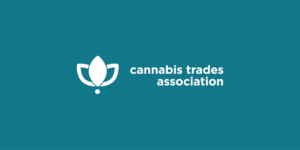
The industry group said that while it ‘acknowledges the FSA’s intent’, there are several significant issues that need to be addressed.
One major issue raised was the lack of ‘clear communication’ from the regulatory body, noting that it ‘does not explicitly state that this is advisory guidance’.
This, the CTA says, may lead consumers or retailers to interpret this as a mandatory limit, adding that both retailers and consumers were ‘likely to be alarmed and confused’.
Furthermore brands who have been adhering to the FSA’s previous 70mg guidance are ‘now in limbo’ and will now be more exposed as being profiled as risky, by banks, insurers and advertising channels.
“It is concerning that, despite the four-year Novel Foods process, there are still no legally authorised CBD extracts in the UK market. The CTA and CBD industry were expecting a more comprehensive, evidence-based regulatory guidance from the FSA, than the advisory produced today.”





















